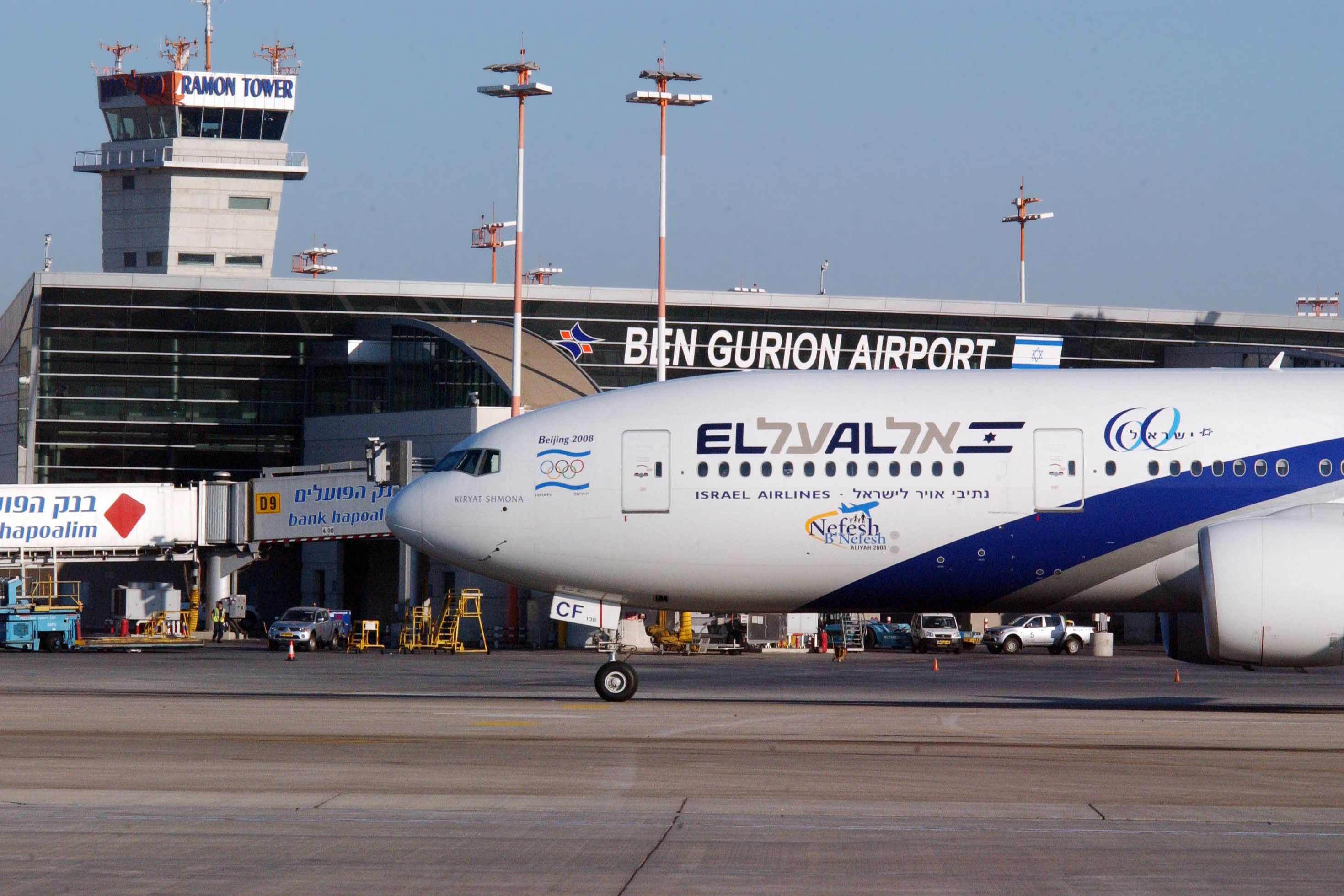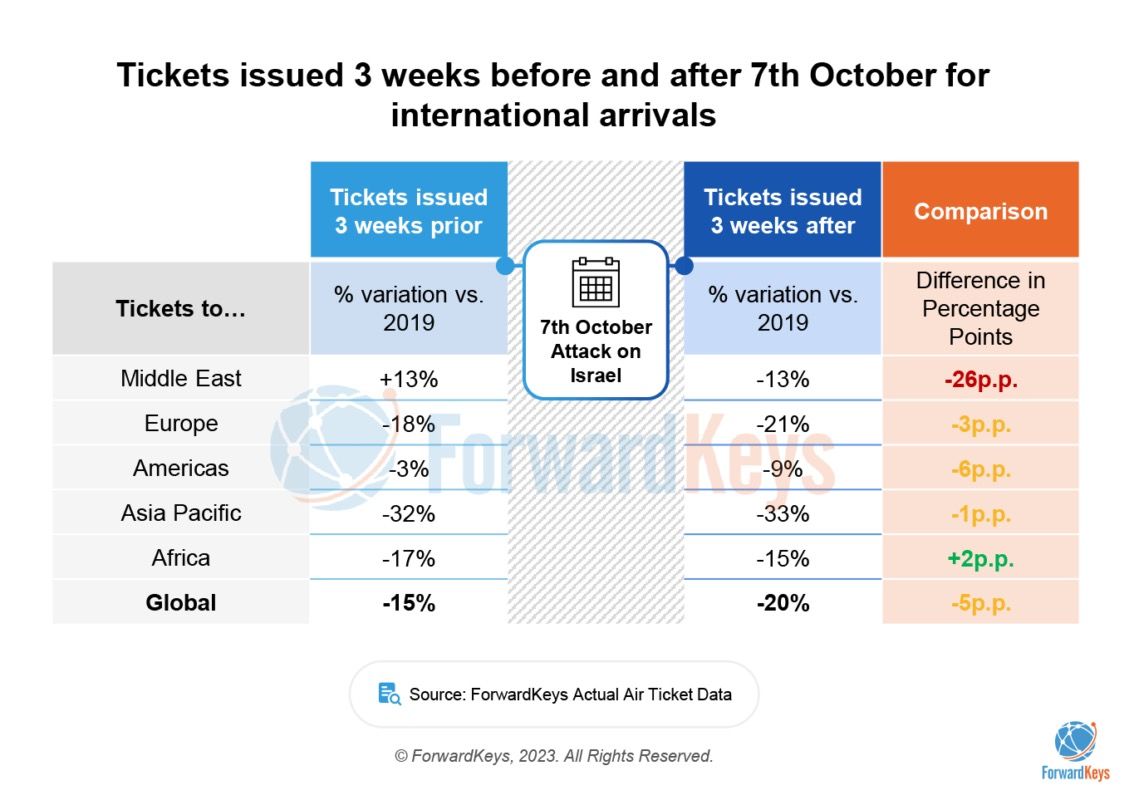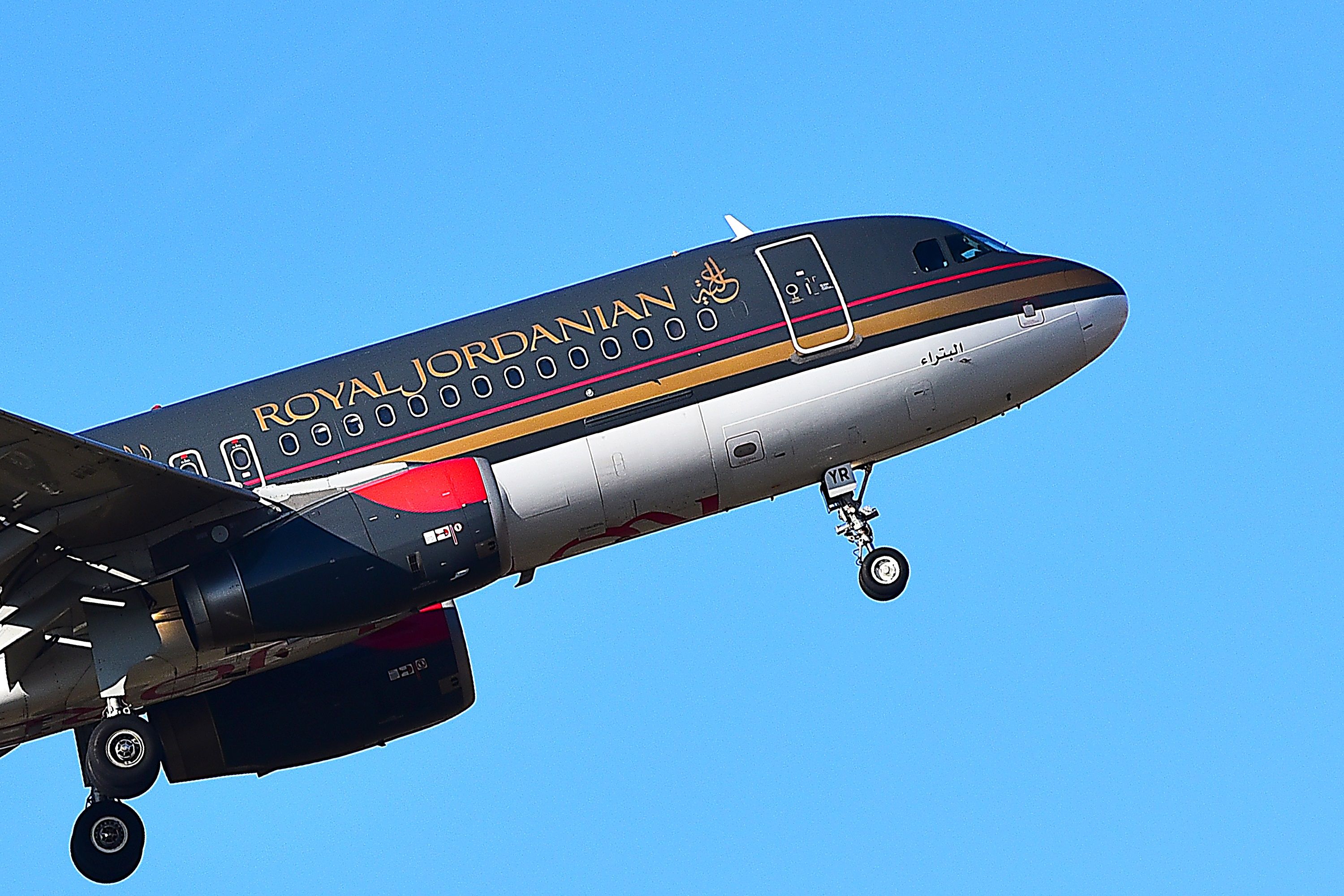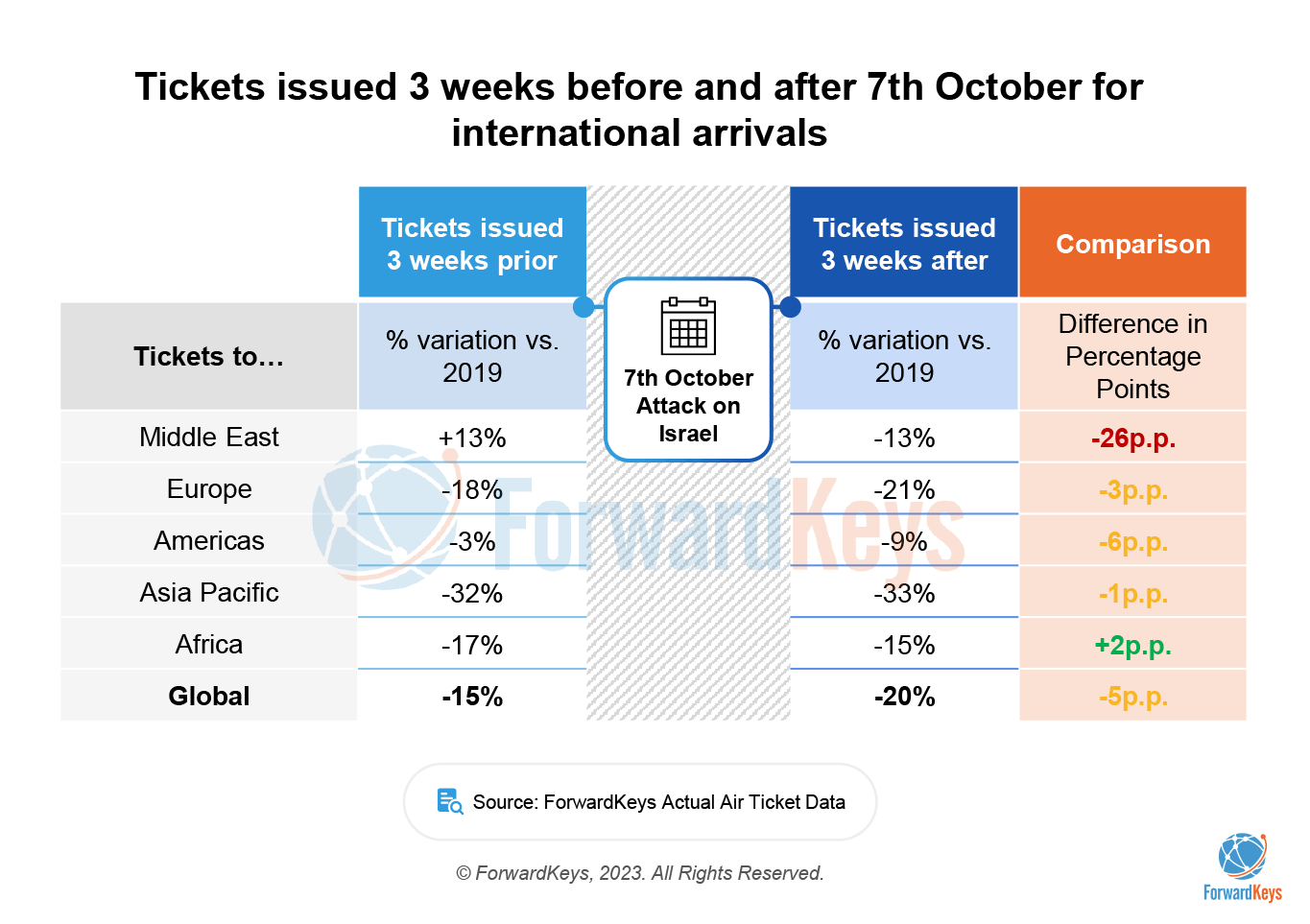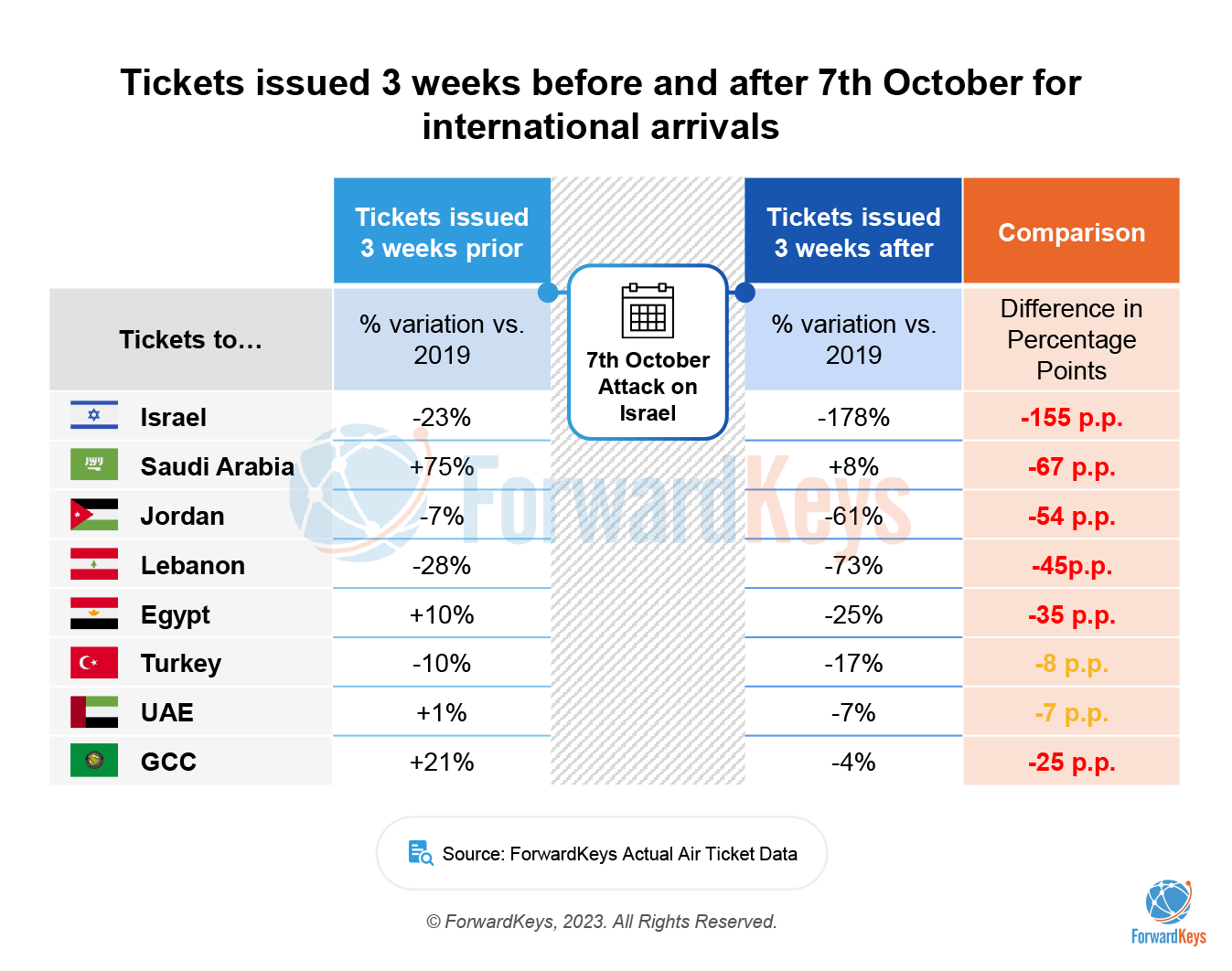Summary
- The conflict between Israel and Hamas has had a distributive effect on travel and flight bookings worldwide, particularly in the countries in the vicinity of the conflict.
- Flight departure reservations for the Middle East have seen a decline of 12% compared to 2019, with a global decline of 5% in airline departures in the three weeks after the conflict started.
- Travel to the Middle East has decreased significantly, with a 13% decline in flight tickets issued compared to the same period in 2019, leading to a dramatic impact on international arrivals to countries like Egypt, Lebanon, Jordan, Saudi Arabia, and Israel.
Unfortunately for many travelers around the world, the conflict between Israel and Hamas is having a distributive effect on general travel and flight bookings all over the world. Nowhere has this been more profound than in the countries in the general vicinity of the conflict, such as Israel. Several of these nations rely on travel and tourism as a significant part of their economic subsistence.
Especially concerning for many of the airlines, airports, and travel-related companies in the area is that this comes at what is considered the peak season in the region. It also comes before the many religious holidays and the New Year festivities. It is also when the temperature cools down, making travel a lot more comfortable for travelers unfamiliar with the high heat in the desert.
Photo: ChameleonsEye | Shutterstock
Double-digit decline in departures
The travel analytics firm Forward Keys, based in Valencia, Spain, has taken a look at the impact that the Israel-Hamas war has had on flight departure reservations before and after the start of the conflict. The tickets reserved for Middle East departures before the start of hostilities had already been showing a general decline due to the slowing economic conditions around the world.
Data: Forward Keys
According to the research, the decline in the three weeks before the start of the conflict was only about 3% compared with the same period in 2019. Three weeks after the fighting started, that ballooned to a decline of 12% in the number of departure bookings compared to 2019.
The Middle East is one of many feeling the general travel and tourism pressure due to the war. Globally, tickets issued for airline departures were down 5% over 2019 levels in the three weeks after the start of the conflict. Several parts of the world are only down 2%, including Europe, Asia-Pacific, and Africa.
Surprisingly, there was a significant drop in flight ticket issuance in the Americas. What was a 6% gain in the three weeks before the start of hostilities has dropped to a 4% deficit, a change of ten percentage points.
Photo: Vytautas Kielaitis | Shutterstock
A significant fall in arrivals
The most significant impact is the number of travelers planning to travel to the Middle East. Forward Keys found that travel to the Middle East was up 13% in the three weeks before the start of the conflict. The increase in ticket issuance is typical of the impact of the religious holidays and cooler weather.
Data: Forward Keys
However, the flight tickets issued three weeks after the Israel-Hamas fighting were 13% below the same period in 2019. This change in ticket issuance is a 26 percentage point swing from positive 13% to negative 13% in just a matter of weeks.
Reviewing the drop-off of international arrivals due to lack of tickets issued, lack of flights, or all-out flight cancelations is dramatic.
For example, tickets issued for flight arrivals to Egypt were down 35 percentage points between the three weeks before the start of the conflict and the three weeks after. Lebanon was down 45 percentage points, Jordan was down 54, and Saudi Arabia was down 67.
Data: Forward Keys
The most significant impact of the conflict was on Israel, where the suspension of many international flight operations led to a decline of 155 percentage points. This impact is dramatic in a country very reliant on international travel and tourism, especially during the winter religious holidays. Flights to Gulf Cooperation Council nations Bahrain, Kuwait, Oman, Qatar, Saudi Arabia, and the United Arab Emirates were down 25 percentage points in the same period.
ForwardKeys Vice President of Insights Olivier Ponti said in a statement about the research results:
“This Israel-Hamas conflict is a catastrophic, heartbreaking, human tragedy that we are all seeing daily on our TV screens. It is bound to put people off traveling to the region, but it has also dented consumer confidence in traveling elsewhere.”
What do you think about the impact the conflict is having on aviation? Leave a comment and let us know.

